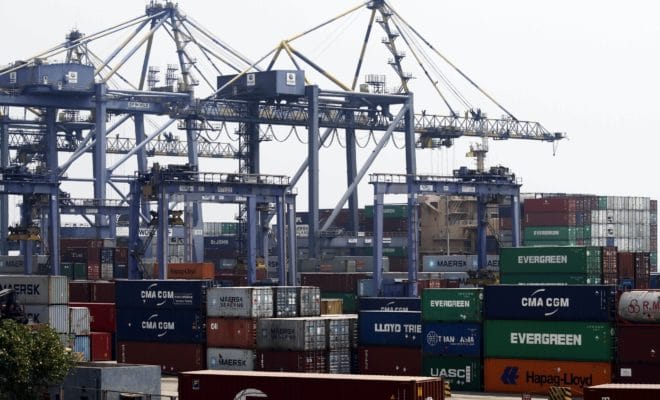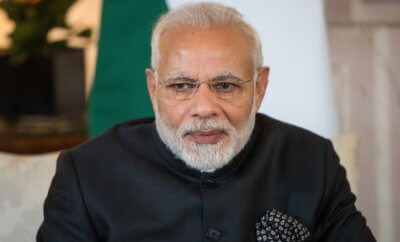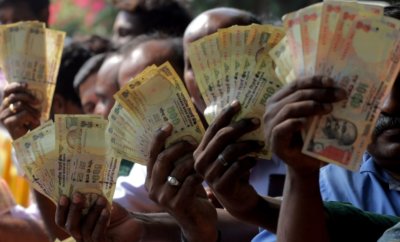Business
India’s GDP Growth to Accelerate to 7.3% in FY19, Says World Bank

Containers at Chennai port.
Photo: IANS
Indian economy is set to revert to its trend growth rate of 7.5 percent in the coming years, the World Bank said in a report.
India’s gross domestic product (GDP) growth is projected to be 6.7 percent in 2017-18 and accelerate to 7.3 percent and 7.5 percent in 2018-19 and 2019-20, respectively, according to the World Bank.
The World Bank’s India Development Update, which was released on March 14, stated that Indian economy is set to revert to its trend growth rate of 7.5 percent in the coming years as it “bottoms out” from the effect of the Goods and Services Tax (GST) and demonetization. The update centers around an assessment of what it will take the country to return to growth rates of 8 percent and higher on a sustained basis.
“India’s long-term growth has become more steady, stable, diversified and resilient. In the long-run, for higher growth to be sustainable and inclusive, India needs to use land and water, which are increasingly becoming scarce resources, more productively, make growth more inclusive, and strengthen its public sector to meet the challenges of a fast growing, globalizing and increasingly middle-class economy,” Junaid Ahmad, World Bank country director in India, said in a statement.
The report added that the country’s GDP growth saw a temporary dip in the last two quarters of 2016-17 and the first quarter of 2017-18 because of demonetization and disruptions surrounding the initial implementation of GST. However, economic activity has begun to stabilize since August 2017.
“While services will continue to remain the main driver of economic growth; industrial activity is poised to grow, with manufacturing expected to accelerate following the implementation of the GST, and agriculture will likely grow at its long-term average growth rate,” the report added.
Strong revival in private investments and exports would be vital for India to attain a sustained high growth of 8 percent and above, according to economist Poonam Gupta, the main author of the report. “This will require continued impetus for structural reforms. Resorting to countercyclical policies will not help spur sustained growth and India should not compromise its hard-earned fiscal discipline in order to accelerate growth,” added Gupta.
The report specified that measures like prudent macroeconomic policy that includes a new inflation targeting framework, energy subsidy reforms, fiscal consolidation, higher quality of public expenditure and a stable balance of payment situation has supported India’s growth in the recent years.
Additionally, recent policy reforms have also helped India improve the business environment of the country and helped ease inflows of foreign direct investment (FDI) and improve credit behavior.
The report also recommended priority areas of reform in sectors like investments, bank credit, exports and advised leveraging external conditions. “The rate of investment needs to accelerate. Private investment in India is constrained by several factors including issues related to past leverages, credit availability, market demand, and policy uncertainty. Understanding and relieving the generic, spatial, or sector-specific constraints to investment growth is important,” it said.
The World Bank had said earlier this year that compared to other emerging economies, India has “enormous growth potential,” with “ambitious government comprehensive reforms.”



